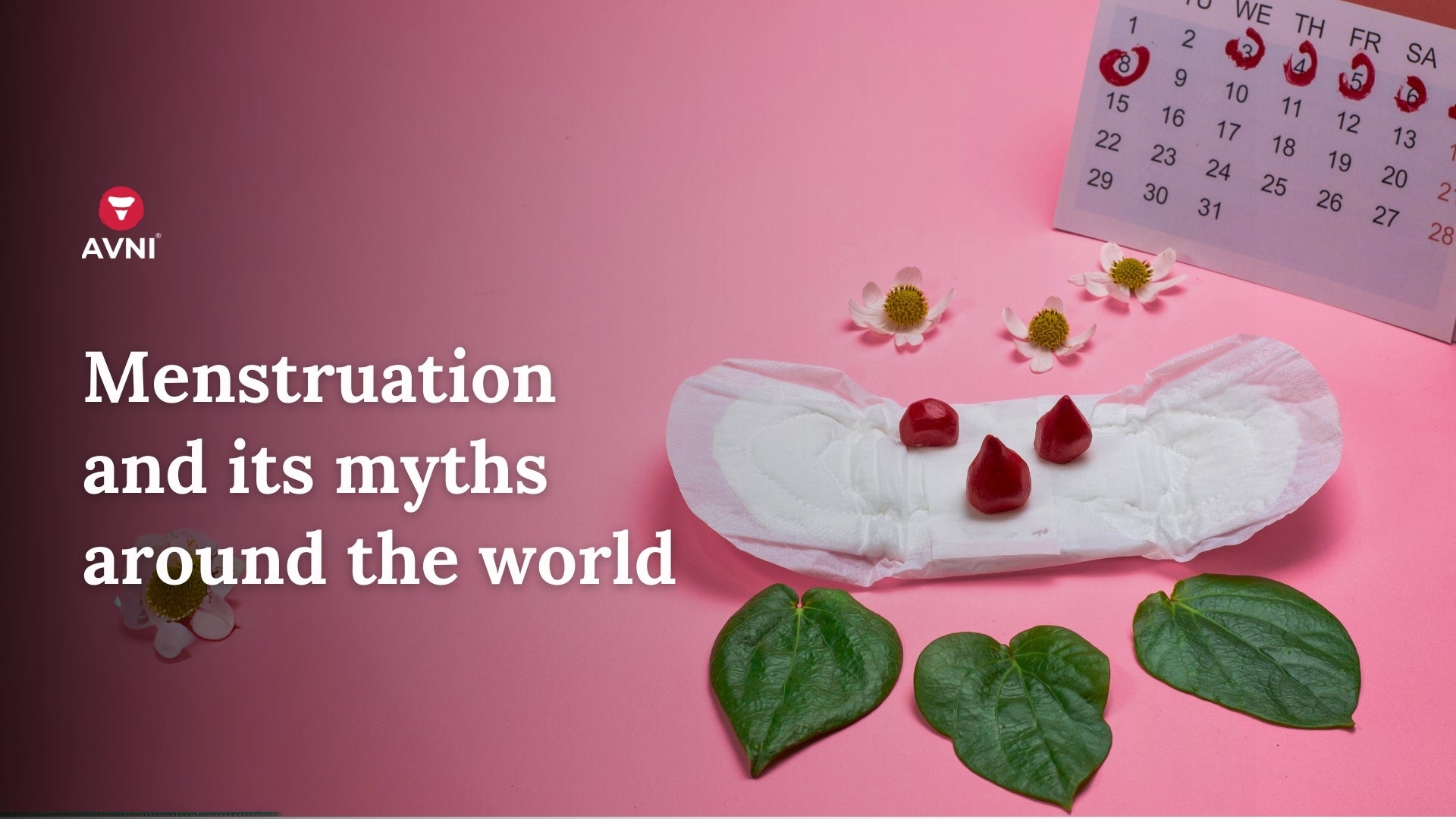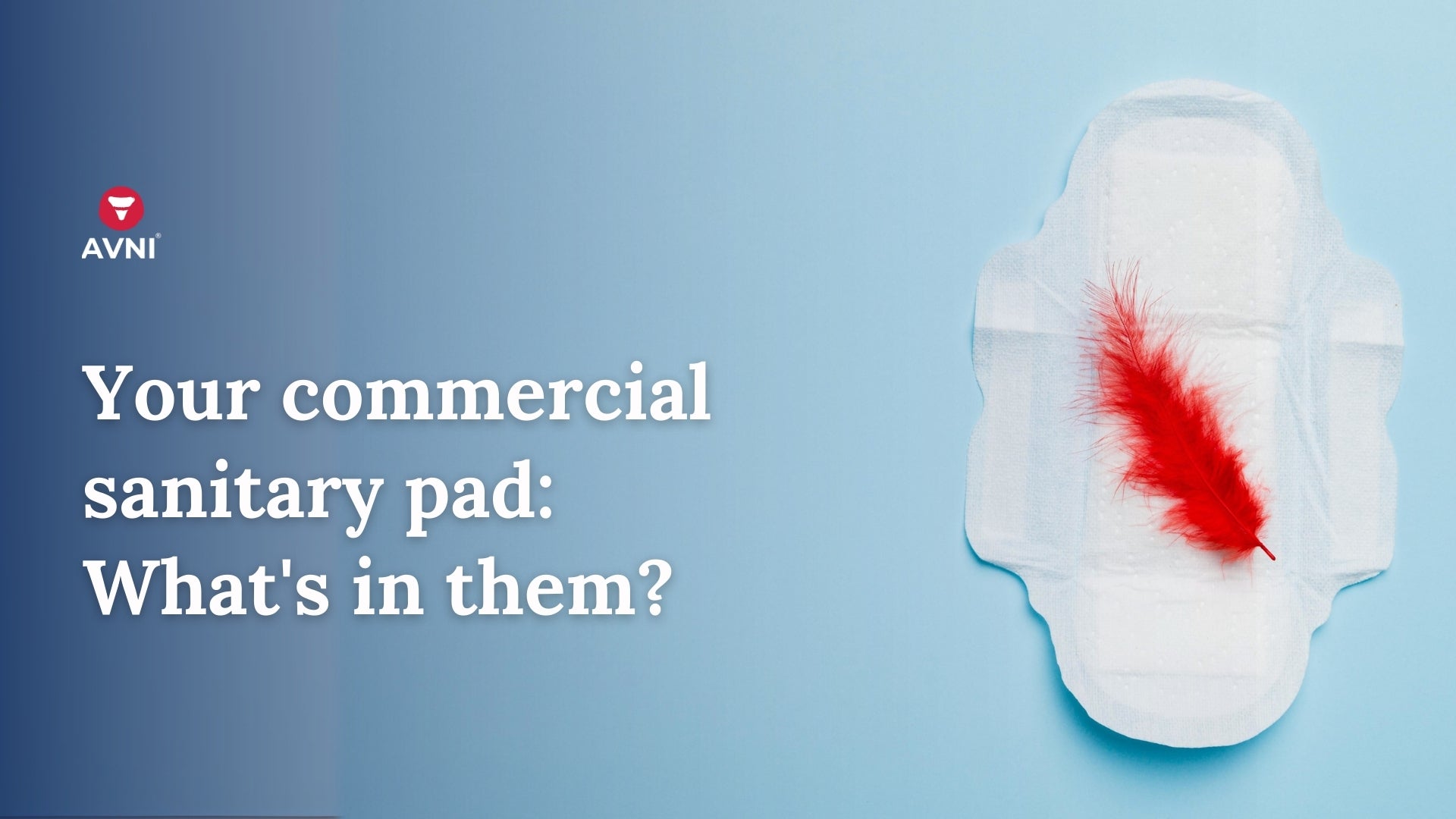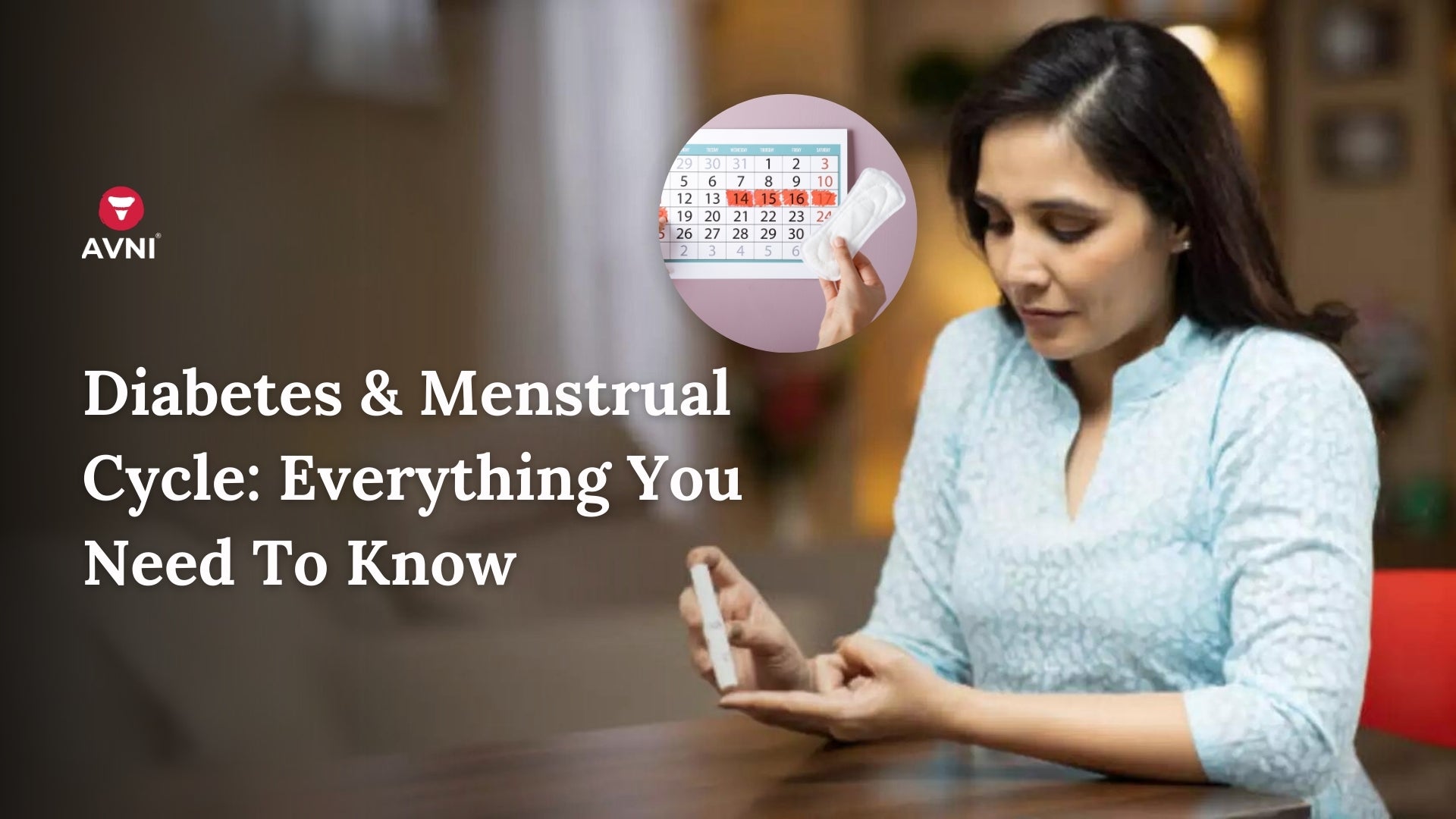
Menstruation and its myths around the world
There are a lot of myths that surround menstruation. It is truly unbelievable how many myths circulate in the world about this natural process. Some of these you may have heard yourself, and some are just downright weird. Surprisingly these myths are still held by a huge number of people in the world—even in this age when information is readily available with a few clicks. Let's set the record straight and address menstruation and its myths around the world.
This blog highlights and debunks 9 myths surrounding menstruation for good.

Myth #1: Cranky? Blame it on the PMS!
If we talk in statistical language…one in four women experience premenstrual syndrome (PMS), with some suffering only minor symptoms. A smaller 5% of women—of childbearing age—experience premenstrual dysphoric disorder (PMDD), a severe form of PMS that is characterized by sudden and extreme mood swings. Physical symptoms (breast tenderness, fatigue, and bloating) are most commonly noticed by women in the week leading up to their period.
However, it is just absurd to blame PMS if a woman is facing mood swings. It may be tempting to dismiss mood swings as “just hormones.” But monthly mood changes are still real. Hormonal changes don’t invalidate a person’s feelings—they just make them more extreme.
Myth #2: A person can’t conceive during periods
The truth: Anyone who has a uterus may get pregnant if the person has unprotected sex at the end of her menstrual cycle and is fertile. Specifically, fertile days can fall within a period.
Well, for one thing, it's not as simple as "sperm dies after ejaculation." New research into reproductive health and fertility challenges the assumption that sperms are almost immediately destroyed after intercourse. It rather suggests sperm can live in the uterus for up to ten days after intercourse.
Those with shorter menstrual cycles are advised to use protection during the last couple of days of their cycle—as they may be at risk of pregnancy during that time. Even those with regular cycles have reasons to worry —since fertility windows are not always predictable!

Myth #3: Menstruation is only for women
The truth: Not every woman has a period and not every female who menstruates is biologically a woman. In simple language… Nonbinary people and transgender men can get periods.
People (trans women) who go through a natal estrogen-based puberty usually get their first period between 9 and 14 years of age. But people who go on hormone blockers may not ever experience menstruation.
Whereas testosterone typically affects trans men's cycles in some way. Taking testosterone usually results in changes to the pre-existing menstrual cycle and eventually ceases the cycle.
Menstruation has a variety of implications in the lives of different people all of which are informed by their gender. The fact that menstruation is seen as inherently a marker of womanhood poses problems for trans and non-binary people who do not identify as women.
Menstruation may seem like a “woman’s issue,” but it is actually a human issue.
Myth #4: Periods are shady
If we stopped thinking of menstruation as dirty, gross, and shameful perhaps we could eliminate the stigma and make it easier for people to talk about their periods. The truth is, we have a long history of shame to overcome. So ingrained in our behavior that the idea of a period taboos us. Letting our guard down doesn't help.
We shouldn’t feel embarrassed to talk about our periods or use tampons. Periods are a part of life and so is talking about them.
In fact, we need to be able to talk more openly about what is happening in our bodies and the products that help us manage it—in the same way, that we can talk freely about the flu or allergies, why can’t we talk freely about periods.
Myth #5: Menstruation blood is unclean blood
The idea that women are unclean during their monthly periods is a myth originates in the Old Testament. This belief has also led to the prohibition of intercourse during menstruation.
Don’t let the myths about period blood scare you. It’s simply a combination of uterine tissue, mucus lining, blood, and bacteria that flows from the uterus through the cervix and out of the body via the vagina.
Besides being able to do all of your normal activities you can also enjoy your sex life while menstruating.

Myth #6 Period pain is not real
Period pain is no joke. It’s not just a headache or a sore back from sleeping on the wrong side. For some of us, period cramps can be excruciating, so much so that we have to take time off work and lie in bed.
Dysmenorrhea is a medical term for the pain you feel during your period. Around 20 percent of women have dysmenorrhea that’s so severe it interferes with their daily activities. It is menstrual pain caused by uterine contractions.
Primary dysmenorrhea is characterized by a sharp, crampy pain in the lower abdomen that comes every month before menstruation. Secondary dysmenorrhea can result from reproductive system disorders. It's also not anything you've experienced before.
Myth #7 Women of a certain age get periods
The age at which you start your period is dependent on several factors: genetics, body type, and the time in your life when puberty hits. In general, girls have their first period around 12 years old, but it is possible for a girl to get her period as young as 8 or as old as 15.
Some women experience menopause in their early 30s, but most women will continue to menstruate until they are 45-55 years old. Menstruation generally lasts between 2-7 days and usually happens every 28 days.
Myth #8 A woman's period is clockwork
Women's cycles aren't always the same, but they tend to follow a pattern—a predictable cycle of highs and lows. Estrogen, progesterone, and other hormones work together to maintain this pattern by thickening and thinning the uterine lining in response to natural triggers like sore breasts, and cramps in the lower abdomen.
The average cycle is 28 days long. But it can range from 21 days to 35 days. The actual period begins after ovulation, on the 15th to 28th day in the luteal phase, when estrogen and progesterone levels drop. This induces the removal of the uterine lining.
Your period may last between three to eight days. Consult a doctor if it lasts longer than eight days and feels abnormally heavy as you may have another health condition (i.e. polyps, bleeding disorders, etc.).
Contrarily, It may be an indication of another set of health conditions (i.e. excessive stress, low body fat) if you are not getting you are not menstruating for more than ninety days—unless you're purposely skipping it with birth control.
Myth #9 It’s not safe to swim while you’re bleeding
This myth may have originated before tampons and sanitary pads were invented or popularized.
The truth: You can definitely swim and take baths during your period without increasing your risk of infection. The best way to avoid a mess is to insert a tampon or menstrual cup before getting into the water.

Are you ready to bash Menstruation Myths?
Myths about menstruation abound and can often be surprisingly insidious in their effect on people's lives. Many myths perpetuate the idea that periods are unclean, unspeakable, or taboo. It is important for people to have a scientific understanding of periods so that these myths can be dispelled and people can feel more empowered by them.



Leave a comment
This site is protected by hCaptcha and the hCaptcha Privacy Policy and Terms of Service apply.